Politics
Northern Territory Emergency Response (NTER) - "The Intervention"
In June 2007, the federal government staged a massive intervention in the NT to "protect Aboriginal children" from sexual abuse. Without consultation Aboriginal peoples' lives were heavily regulated, and many felt ashamed and angry. Despite wide-spread protests the intervention was extended until 2022.

Wishing you knew more about Aboriginal culture? Search no more.
Get key foundational knowledge about Aboriginal culture in a fun and engaging way.
This is no ordinary resource: It includes a fictional story, quizzes, crosswords and even a treasure hunt.
Stop feeling bad about not knowing. Make it fun to know better.
Selected statistics
-
94% - Percentage of income-managed people in the NT who are Aboriginal [1]. More than 3/4 of those who managed to move off the scheme are non-Indigenous.
- $282,048
- Money the government spent to advertise the Basics Card to local businesses in Bankstown, NSW, before introducing income management there [2].
- $76m
- Government spending in 2011-2012 to implement income management in the Northern Territory [2].
This is our holocaust.
— Statement by local Aboriginal people to Dr Stephen Foster, district medical officer for remote communities in the Northern Territory [5]
What caused the NT intervention
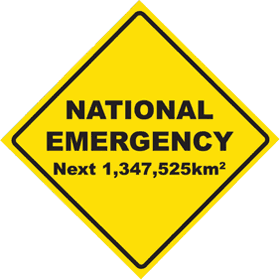
In August 2006 the Northern Territory government commissioned research into allegations of serious sexual abuse of children in Aboriginal communities. An inquiry was established to find better ways to protect the children. On 15 June 2007 the commission released its report, called Little Children are Sacred (PDF).
Less than a fortnight after its publication, on 23 June 2007, the federal government staged a massive intervention in the Northern Territory where the commission had collected its data, sending in army troops. They called it the 'Northern Territory Emergency Response (NTER)'. Aboriginal and non-Indigenous people however quickly labeled it 'the intervention'.
The intervention has had consequences that will have repercussions for generations.
— Prof Mick Dodson, Aboriginal leader [7]
[The intervention] is one of the worst policies inflicted on Aboriginal people in my life time.
— Jeff McMullen, journalist, who has been visiting Aboriginal communities for many decades [5]
Intervention changes
Legislation passed by both major parties (Labour and Liberal)
- removed the permit system for access to Aboriginal land,
- abolished government-funded Community Development Employment Projects (CDEP),
- subjected Aboriginal children to teaching in a language they don't speak for the first four hours at school,
- quarantined 50% of welfare payments,
- suspended the Racial Discrimination Act (RDA),
- expected Aboriginal people to lease property to the government in return for basic services,
- compulsorily acquired Aboriginal land and
- subjected Aboriginal children to mandatory health checks without consulting their parents, and against the sacred oath of doctors [8].
Under the discriminatory laws of the Intervention our communities are collapsing, we are prevented from being self-sufficient, from developing our community programmes and supporting our families. Our jobs on CDEP that we have been dependent on for the last 30 years, helped us to build our community, have been cut-off and everything has come to a halt. Our rights have been blocked.
— John Leemans, a Gurindji man from Kalkarindji [9]
Intervention critique
The Prime Minster at that time, John Howard, said when presenting the intervention: "It is a disgrace that a section of the Australian population, that little children should be the subject of serious sexual abuse." [10]
Critics of the invasion point out, however, that the word 'child' or 'children' does not appear once in the hundreds of pages of the NT Emergency Response Act.
Because the Act has plenty of references to land, many Aboriginal leaders see the intervention as a land grab to make it easier for miners to access Aboriginal land.
It seems impossible to draft the Act in the short time between publication of the Children are Sacred report and the start of the intervention.
On the day the intervention was announced Howard had been Prime Minster for 11 years. In that time there had been 13 official inquiries into sexual abuse of Aboriginal children, 3 of them federal [10] - enough opportunities for him to act.
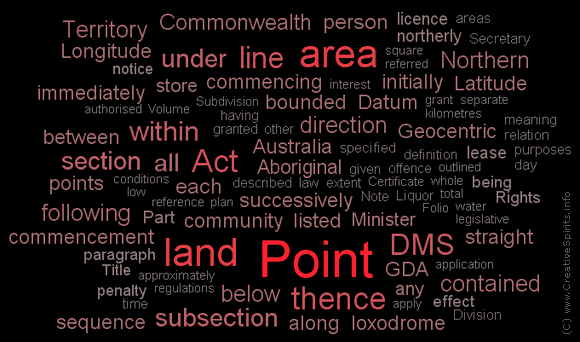
Others suspect that the intervention was part of "a real tradition in Australian culture of blaming the victim when it comes to Indigenous people" [11]. "People want to do something so they jump in and make all sorts of top-down decisions. But this 'solution' compounds the problem and sends a very powerful message to Indigenous people which says that 'you are no good, you can't sort out your problems, you need us to do it'." Constant reiteration of this message causes Aboriginal people to internalise this victim attitude.
The abolition of Community Development Employment Projects (CDEP) saw many Aboriginal communities lose their youth to work opportunities elsewhere, and increased levels of drinking [12]. Many enthusiastic local young workers missed out on work that was given to external contractors. Other communities' economy simply collapsed after CDEP had been abolished.
Everywhere we went, everyone complained. Both men and women complained about pornography.
— Pat Anderson, co-author of the 'Little Children are Sacred' report [13]
Definition: White cockies
In Aboriginal communities people coming in and talking to them and then going again while nothing happens are known as 'white cockies'. [14]
"They fly in, squawk a lot, shit on you and then fly out again."
No real consultation with Aboriginal people
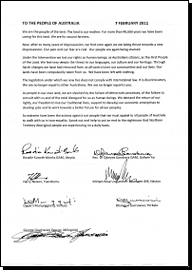
One of the main criticisms of the Northern Territory Intervention is that the government did not properly consult with Aboriginal people. It reminds Indigenous people of politics of the mission days when non-Aboriginal managers had dictatorial powers over almost every aspect of their lives.
We were not consulted; the intervention disregards Yolngu governance and law as if it was never there;… it disrespects our land rights, our culture and our rights as human beings.
— Raymattja Marika-Mununggiritj, Co-Director Mulka Multimedia Centre, Yirrkala, NT [15]
The government sometimes provides documentation in English only, which is often the third or fourth language of Aboriginal people in remote communities. Discussions should be undertaken with interpretation and a full recording of the events, demands former Prime Minister Malcolm Fraser [16].
In February 2011 a group of respected Aboriginal elders signed a document (see right) protesting against the ongoing intervention. Prominent signatories include Fraser, rights advocate Patrick Dodson, law professor Larissa Behrendt, former Australian of the Year Professor Fiona Stanley and former Family Court Chief Justice Alastair Nicholson [17].
Alastair Nicholson says that the government "has not held proper consultations with the Aboriginal community as this [Will They Be Heard] Report amply demonstrates."[18] He quotes an Elder from the Aboriginal community of Utopia as saying:
We feel here that the intervention offers us absolutely nothing, excepting to compound the feeling of being second class citizens. The only thing that we have gained out of the intervention is the police.
— Utopia Elder [18]
Aboriginal and Torres Strait Islander Social Justice Commissioner, Mick Gooda, predicts that "we will eventually learn from the Northern Territory intervention that top-down imposition of measures will never be sustainable. What happened in the NT, we all felt, whether we lived in the NT or live in Melbourne, added to the mistrust that we have in government." [19] He too suggests "governments will be more effective if they develop service delivery models in collaboration with local [Aboriginal] communities".
Even the government itself acknowledges the lack of consultation with Aboriginal people.
I acknowledge that the instigation of the NTER [Northern Territory Emergency Response] by the [Howard] government was a major shock to many Aboriginal people and communities in the Northern Territory and was seen as a serious affront. There was no consultation before it was initiated, and the nature of some of the measures and coercive tone utilised undoubtedly caused anger, fear and distrust.
— Jenny Macklin, Minister for Families, Housing, Community Services and Indigenous Affairs [20]"
Howard himself said that the Intervention was all about "mainstreaming" Aboriginal people:
“It was said to be about sexual abuse, but quickly, within a month, it came to focus on dysfunction in Aboriginal communities and then the real description of the intervention was laid out by John Howard in August 2007. He said it was about mainstreaming or normalising remote-living Indigenous Australians and he told residents at Hermannsburg that, while respecting the special place Indigenous people in the history and life of this country, he said their future could only be as part of the mainstream of the Australian community. That was what it was about.“ [21]
Video: Explaining the intervention
Professor Jon Altman of Deakin University is one of Australia’s leading authorities on remote Aboriginal communities. Watch him explain the history of the intervention, the ways in which it was supposed to work and how it has failed. (19 mins)
No "pedophile rings"
One of the reasons the government stated for the Northern Territory intervention was that it suspected 'pedophile rings' operating in Aboriginal communities.
But an ABS social survey showed that in 2005-06 (the year prior to the Northern Territory Emergency Response) only 4.2% of substantiated reports for Aboriginal child abuse and neglect were for sexual abuse compared to 9.3% of non-Aboriginal NT children. [22]
"The pedophile rings proved to be totally false and I have yet to read a report on the sexual abuse of a child perpetrated by an adult arising from the NT intervention," says Ray Jackson, President of the Indigenous Social Justice Association [23].
He explains that what alerted the authorities was "consensual teenage sex and 15-year-old brides with their promised husbands. Aboriginal culture in practice."
But the police treated such marriages as breaking the law and arrested the husbands. Under Aboriginal custom and law, such marriages are usually fully endorsed by both families.
Aboriginal people are cast as this mass, almost without humanity, so abuse of children is seen as spread out to all communities. If that was true, I should have seen pedophiles and neglectful mothers, but I didn't.
— Julie Nimmo, director of the film 'The Intervention' [24]
Story: "You are forcing us to abandon our culture"— Aboriginal elder
"I write because the so-called intervention in the Northern Territory is not working and there is a desperate need for another review.
"I am a Senior Elder of the Liya-dhalinymirr clan of the Djambarrpuyrju People (Eastern Arnhem Land) and I also lecture in Yolngu Studies at Charles Darwin University in the Northern Territory.
"As far as I am concerned, the intervention has only created problems in my communities as well as remote homeland centres. It has made our people more frustrated and confused.
"The white man's way of thinking is being forced on us, and is forcing us to abandon our culture.
"We desperately need the white authorities, Federal as well as Northern Territory, to come and talk to us at the community level.
"There has not been enough consultation. Many in my community and others I speak to think the same way.
"This whole process has been a huge waste of money that has left our people scared.
"In fact, the intervention has led to the further destruction of our culture, ceremony and a loss of discipline among our people.
"The white authorities don't know what is best for us. They only think they do.
"Governments class all Aborigines as the same, but they are wrong.
"These white people and the bureaucrats do not go out to the East Arnhem Land communities where my people live, where there has never been alcohol, and there is no child abuse. There are Aboriginal people living on remote communities of Arnhem Land, in homeland centres, away from towns, away from the binge drinking areas, poker machine and gambling venues. These are people who are able to manage their funds and work, or want to work.
"Quarantining of Centrelink payments should be optional – not compulsory. Quarantining might be okay for people living in town camps and cities, where alcohol and gambling is a problem, but it doesn't work for my people living on remote Arnhem Land homelands where there is no gambling, no alcohol and no child abuse.
"We are asking simply for understanding that in life there needs to be an understanding between two cultures. There needs to be respect between cultures."
Yingiya Guyula, Darwin, NT [25]
You can listen to more voices of Aboriginal people in the AWAYE! programme of the Australian Broadcasting Corporation’s Radio National, Elders on the Intervention (16 April 2011).
Story: "A vicious Big Lie"—journalist
Journalist Jeff McMullen has travelled widely among Aboriginal people for more than 40 years. He is a passionate critic of the Northern Territory Intervention. Here is an excerpt of a speech he gave in 2010 [8].
"The greatest tragedy in our history is that we keep repeating the same mistakes. When Aboriginal people ask for real help on their terms the government betrays their trust by treachery. The government so often creates a worse problem than the one it claims to be fixing. This is surely the case with the Northern Territory Emergency Response.
The viciousness of the Intervention, launched in June 2007 and stumbling on today, is that preposterous Big Lie which says that whole communities of Aboriginal people abuse their children, that Aboriginal parents en masse are incapable and irresponsible, that Aboriginal women cannot responsibly manage their meagre family budget, that Aboriginal men are all wife-beating, child molesting, drunken, apathetic relics of a past hunter-gatherer society that is finished. Let me say it again as I did in August 2007 when the Northern Territory National Emergency Response Act was passed. This is a vicious Big Lie."
Shopping with a ration card
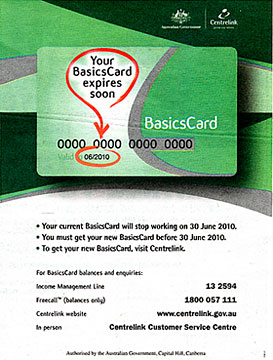
One measure of the Northern Territory Intervention was to impose income management, which started in 2007 with cashless welfare cards, initially called 'Basics Cards'. To prevent Aboriginal people from spending welfare benefits on alcohol, gambling and junk food, between 50 and 80% of their income is subject to government control and accessible only through the card. The card is accepted at government-approved food outlets and in theory meant to work similarly to a bank ATM card.
Cashless welfare cards have since been introduced into several communities in South Australia, Queensland, the Northern Territory and Western Australia.
But a multitude of studies and reports shows that income management schemes do more harm than good.
The Menzies School of Health’s 2010 study into compulsory income management and spending patterns identified no significant changes regarding the consumption of alcohol, cigarettes, and soft drink, nor of fresh fruit and vegetables. [27]
A report in 2011 by the Equality Rights Alliance cast doubt on the government's claim of broad support for income management among Aboriginal women. [28] It collated the views of more than 180 Aboriginal and African women affected by income management.
Key findings of the report include:
- Habits didn't change. 85% of the women surveyed said they had not changed what they bought because of the Basics Card.
- No savings. 75% said it made no difference to their spending, 22% saved money with the card, and 2% said it cost them more to use it.
- Not helpful. 74% said it did not make it easier to look after their family.
- No respect. 85% said they did not feel respected when they talked to Centrelink, the agency administering the Basics Card. 74% felt that people weren't as nice to them when they saw them using a card.
- Not safer. 70% of the women said they did not feel safer since the introduction of income management.
Some card users didn't know how to use the card, get its balance, how to report problems with their card, or to apply for a greater percentage of their welfare payment to be available as cash. The elderly and people with literacy and health issues are particularly vulnerable.
Others are embarrassed when they approach supermarket check-outs. "At check-outs in Woolworths and Coles... we have got one line for the black people who have these special basics green cards and you have got the other check-outs which are open to the general public. It is an embarrassment," notes Aboriginal elder, Richard Downs. [29]
A 2012 independent evaluation of income management in the NT found no clear evidence of the value of the program. At best, some people perceived that they were being assisted by the program. More than two thirds said they felt discriminated against by income management, three quarters felt it was unfair and a similar number reported feelings of embarrassment. [30]
Another report, Evaluating New Income Management in the Northern Territory, released in December 2014, confirmed earlier findings when it found "no substantive evidence of the program having significant changes relative to its key policy objectives, including changing people's behaviours". [31] It did not find any evidence of income management achieving its goals.
The first large, independent study into compulsory income management from the universities of Queensland, Griffith and Monash in 2020 also dismissed income management with cashless cards. While a minority might experience more stable lives and finances, a majority "faced additional financial challenges" and additional instability from practical difficulties. [32]
"Our findings show that CIM [cashless income management] has in fact weakened many participants’ financial capabilities and autonomy," says University of Queensland’s Professor Greg Marston. The study also found that the social, emotional and economic costs of continuing with a compulsory, widespread system outweighed the benefits and was "disabling" people – across all research sites.
The study's survey found that 76% of participants said they had not enough cash, and 84% had experienced stigma and shame while using the card. [33]
People still need cash for lunch money for their children, school excursions, to assist family members, for cash-in-hand payments for goods and services, second-hand items or simply when the cashless card system broke down.
As a result, many people on cashless cards had to spend more money. [32]
Authorities have not considered these cases which led to people finding their own ways of getting cash. Some businesses simply charge higher prices to the welfare card, and give people cash or a carton of beer in return. A few people turned to prostitution to get cash. [34]
Welfare cards prevent people from managing their money. Since all bill payments are set up by Centrelink to automatically come out of the welfare card, people are unable to make their own decisions about which bills should be prioritised and which ones could be paid late. [34]
Each person subject to income management in the Northern Territory costs between $6,600 and $7,900 in remote areas, and $4,600 in the five trial sites. More than half a billion dollars was spent by June 2013. [30]
About 35,000 people have been on the Basics Card in the Northern Territory since its introduction, more than 90% of them Aboriginal. [31]
Despite all the criticism, the government extended its cashless welfare card program several times.
For more details, read the report Hidden Costs: An Independent Study Into Income Management in Australia by the University of Queensland.
I am on the Basics Card like thousands of my people. I am capable of acting in [Redfern Now,] an internationally-acclaimed drama for our national broadcaster [ABC], but because I'm black and from the NT, the government says I'm incapable of managing a Centrelink payment.
— Patricia Morton-Thomas, Aboriginal actor [35]
Story: Shopping with the Basics Card "utterly useless"
Here's the first-hand experience as presented by Bev Manton, Chairperson of the NSW Aboriginal Land Council [36].
"Shopping with a ration card in the NT roughly consists of the following scenario: You enter one of the few stores in town where your ration card is accepted, completely unaware of the balance remaining, and with no easy way of checking that balance.
"You can choose any item in the store, but without an idea of the balance, one tends to select the cheaper, less healthy products to avoid the shame of returning those items to the shelf when you go to pay.
"Fresh foods, including red meat, vegetables and fruit can only be bought in very small quantities (if they're even provided); they're just too expensive.
"You then head to the checkout and wait in line, but when you go to pay for the shopping, there's not enough credit on your card. As the murmurs and whispers grow in volume behind you, you're directed to another aisle down the end of the supermarket, which has been set aside for 'you guys'.
"It's at this point the knock-out punch comes as you're told you can't afford about one-quarter of what you need to feed the family.
"In places like Camel Camp, only 250kms north-east of Alice Springs, there's simply nowhere to access decent fresh food. There's limited access to health care, no roads - only tracks, and the living conditions are unfathomable to most Australians.
"Out here, the so-called 'Basics Card' is utterly useless."
It's a degrading, humiliating and pride-sapping emotional whipping of the highest order.
— Bev Manton, Chairperson of the NSW Aboriginal Land Council, about using the Basics Card [36]
Video: Watch Kylie Sambo talk about income management
Kylie Sambo from Tennant Creek responds to the expansion of income management to new categories of youth at risk. From July 2013 income management was compulsorily applied to all people under 25 exiting prison or receiving the "unable to live at home" allowance from Centrelink.
False statistics?
In mid-2009 the government collected data on the effectiveness of welfare quarantining in Aboriginal communities. The government's own Department of Families, Housing, Community Services and Indigenous Affairs developed the evaluation approach and managed the data collection.
To no surprise it found that two thirds of people being income-managed "had a positive view" of the program—"a joke", as the Australian Greens party put it [37].
The Australian Institute of Health and Welfare refused to be involved in the data collection for ethical reasons [37].
Similarly, after the introduction of the Healthy Welfare Card in 2015, the Prime Minister, Malcolm Turnbull, said during a tour of an Aboriginal community in 2016 that the card had made a “positive difference” to the community and could be rolled out to others—a statement community members disagree with. They have "a sense of shame" when they have to pay for items on the card [34] and feel discriminated against, disempowered and voiceless. Even a health economist had his doubt, saying "it is hard to see how they [the government] will have evidence of the program’s impact on which to base an informed policy decision". [34]
FOODcard—an Aboriginal-controlled alternative
In 2004, three years before the NT intervention, the Arnhem Land Progress Aboriginal Corporation (ALPA), one of the largest financially independent Aboriginal employers in Australia, introduced a FOODcard which works similarly to the government's BasicsCard [38]. Here's how it compares to the Basics Card and the Healthy Welfare Card, introduced in 2015 [38][39].
Since the Australian government introduced the BasicsCard the number of FOODcard users has plummeted from 700 to 120 [40].
It took two years until Centrelink allowed the store in Mapuru (about 500 kms east of Darwin) to accept the BasicsCard. Before it did, residents had to charter an aircraft for $500 to travel to the next store [41].
| FOODcard | BasicsCard | Healthy Welfare Card (indue card) | |
|---|---|---|---|
 |  |  | |
| Year introduced | 2004 | 2007 | 2015 |
| Available in how many communities | 14 | 73 | target: all regional communities |
| Aboriginal communities consulted about card? | Yes | No | No |
| Terms and conditions available in | English, Yolngu Matha | English | English |
| Card is | voluntary | mandatory | mandatory |
| Percentage of income put on card | card holder decides | 50%, determined by Centrelink | 80% |
| Card can be used by | card holder, family members, homeland centres, councils, school organisations | card holder only | card holder only |
| Security | password, microchip | PIN | PIN |
| Items not available with card | alcohol, tobacco, pornographic material, gambling services, toys, high-sugar and high-fat food | alcohol, tobacco, pornographic material, gambling services | alcohol, pornographic material, gambling services, drugs |
| Service fees covered by | ALPA | government | government |
| Cost per person per year | ? | $4,500 .. 7,700 | $12,000 |
The Intervention legislation of 2007, that continued as Stronger Futures laws from 2012, are a complex set of oppressive and racist laws... designed to discipline Aboriginal men demeaned by parliamentarians... as violent and dangerous and in need of radical cultural and behavioural modification.
— Prof Jon Altman, Deakin University [42]
The level of spin by our government to shine the [welfare] card in the best possible light is something we should all be talking about.
— Rachel Siewert, Senator [43]
Intervention creep
NT Intervention creep is a term used to describe Aboriginal people who flee from their smaller communities, which are covered by the intervention, into the larger cities such as Darwin or Alice Springs, driving up the number of homeless people. On any given night up to 500 people slept rough in Darwin in 2010 [44].
Intervention creep comes at a price—Darwin City Council is able to confiscate and destroy their belongings and fine them. In Alice Springs Aboriginal locals blame people escaping the intervention for a significant increase of lawlessness, drunkenness and violence, and putting more stress on the already overcrowded town camps.
This monster – intervention – needs to be destroyed and buried.
— Dr Djiniyini Gondarra, Aboriginal Elder [45]
You cannot drive change into a community and unload it off the back of a truck. That is the lesson of the Intervention.
— Northern Territory Emergency Response Review Report, 13 October 2008, p58
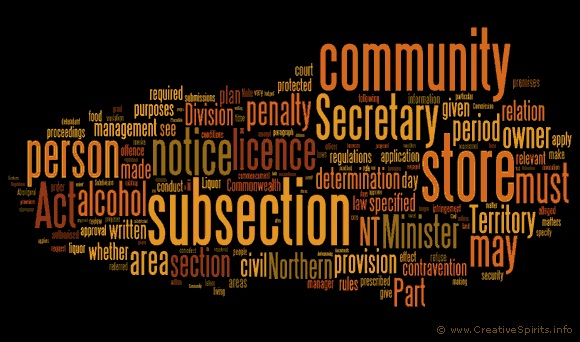
Homework: The intervention and COVID-19
Dr Ian Norton, an emergency response expert and former head of WHO's emergency medical team initiative, made the following comments about lockdown communication during the COVID-19 pandemic: [46]
“If a population is well-messaged and part of the conversation they are more likely to comply with incremental increases [in restrictions] and also expect them to drop away as soon as possible when the risk passes.
“If not then they can lose faith in the system … if they feel [a lockdown] is not required and it’s being done for other reasons then you’ve lost them and it's very hard to get them back.”
Questions
- Put yourself into the shoes of an Aboriginal person living in the NT. Would you agree to the above comment if it was made to you in the context of the intervention?
- Based on Dr Norton's comments, what would you advise the government change?
Intervention resources
There is a growing number of resources on the Northern Territory intervention developing in Australia.
Concerned Australians
The website of Concerned Australians has many great resources about the NT intervention.
Bad aunty: The truth about the NT intervention and the case for an independent media
This article, written by Chris Graham of The Tracker magazine, is an extremely important historical document that exposes false reporting causing Aboriginal misery: A ministerial official posed as a community doctor and lied about paedophile rings and told all sorts of other lies to an ABC report, which helped trigger the intervention. Many Aboriginal people believed this story.
Audio: Kevin Wirri - Artist
Kate Finlayson produced a story about the NT intervention from the point of view of an Aboriginal artist, Kevin Wirri. Kevin lives with his family in one of the town camps that dot the dusty bed of the Todd River in Alice Springs. Kate returns after a long time to find her friend's young son, Elton Wirri, has become a famous Aboriginal artist.
Audio: Kevin Wirri - Artist (ABC)
Working Group for Aboriginal Rights (Australia)
The Working Group for Aboriginal Rights (WGAR) publishes WGAR News which monitors the media focusing on the Australian Federal government intervention into Northern Territory (NT) Aboriginal communities along with other Aboriginal rights issues. The newsletter includes media releases, opinion pieces, news items and events, and is published about twice a week. To subscribe, email [email protected] and include the words "subscribe WGAR News" in the message header.